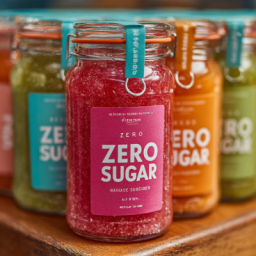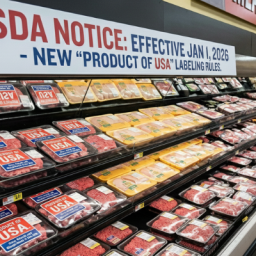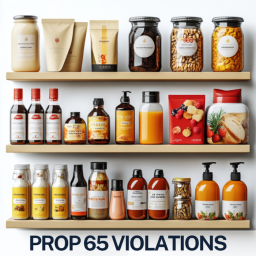
On July 24, 2025, the FDA and USDA issued a joint Request for Information (RFI) to create a uniform federal definition of “ultra-processed foods” (UPFs). This move aims to reshape U.S. food regulation and responds to mounting health concerns tied to UPF consumption—specifically rising rates of cardiovascular disease, obesity, and cancer.
The White House’s “Make America Healthy Again” (MAHA) Commission drove this initiative forward. While the health risks of UPFs have long been debated, the lack of a formal definition has stalled both regulatory action and consistent scientific research. The RFI invites public comment on six core topics, including ingredient content, processing methods, and nutrient density. Comments are due by September 23, 2025.
This federal effort arrives amid a patchwork of state-level proposals. States like California, Pennsylvania, and Massachusetts have each proposed their own UPF definitions. Some focus on specific ingredients, while others target processing methods or additive use. A unified definition would streamline these efforts, but it could also bring new compliance burdens and increase litigation risks—especially for food and beverage companies.
How a Federal UPF Definition Could Affect Prop 65 Enforcement
California’s Proposition 65 requires warnings on products that contain chemicals linked to cancer or reproductive harm. Plaintiffs’ lawyers frequently rely on this law to sue food and beverage companies, especially when products contain even trace amounts of substances like acrylamide or lead.
A formal UPF definition may create a shortcut for these lawsuits. Plaintiffs could argue that any product classified as ultra-processed likely contains harmful additives or contaminants, triggering Prop 65 obligations. If ingredients like synthetic antioxidants or emulsifiers appear on FDA’s radar, their use may lead to automatic scrutiny—regardless of their safety profile.
This shift could expose companies to lawsuits not based on actual contamination, but on their ingredient lists or processing methods. Businesses should review formulations now and consider updating their Prop 65 protocols, warning language, or documentation.
Ingredient Innovation Under Scrutiny: The New Risk to Clean Labels
The RFI raises red flags for companies that rely on functional or innovative ingredients. FDA and USDA specifically ask whether ingredients like natural flavors, artificial colors, bulking agents, and stabilizers should define a food as ultra-processed.
For many R&D teams, these components are essential. They improve taste, texture, or shelf life. But if regulators flag them as signs of UPFs, brands may need to reconsider how they market or use these ingredients.
This shift could especially hurt clean-label brands. Start-ups and challenger companies often use ingredients like monk fruit extract or plant-based gums to differentiate their products. If these become regulatory liabilities, their market advantage could vanish.
To stay ahead, companies should track the RFI process and engage directly if possible. Participating now may help ensure that beneficial ingredients aren’t mistakenly categorized as harmful.
Labeling, Litigation, and the Risk of Being “Ultra-Processed”
Once the FDA and USDA finalize a definition, it will likely influence more than research—it could shape labeling rules, marketing claims, and consumer lawsuits.
For example:
- Could “ultra-processed” become a regulated label term, like “natural” or “healthy”?
- Will brands need third-party certification to claim that a product isn’t a UPF?
- Could plaintiffs sue over marketing that suggests a product is “clean” or “wholesome,” even if it fits the UPF definition?
These scenarios are plausible. We’ve already seen similar trends with class actions targeting “natural” claims. A defined UPF category could fuel the next wave of food labeling litigation.
Now is the time to act. Brands should review their product labels, marketing claims, and ingredient panels. If they discover areas that might conflict with a federal UPF framework, they should develop plans to mitigate that risk.
FAQ: What Food Businesses Need to Know About the UPF Definition
Question 1: Why are FDA and USDA defining ultra-processed foods now?
Answer: The agencies want to create a consistent, evidence-based definition to support health research and regulatory decisions. Right now, there’s no standard—so states, scientists, and courts use different definitions. A federal definition will reduce confusion.
Question 2: What ingredients or methods might flag a product as “ultra-processed”?
Answer: The RFI focuses on ingredients like emulsifiers, artificial flavors, thickeners, and color additives. It also asks about industrial processes like extrusion and hydrogenation. These factors may all be used to determine whether a food qualifies as ultra-processed.
Question 3: Could being labeled as a UPF lead to lawsuits or consumer complaints?
Answer: Yes. If a product meets the new federal definition but is marketed as “natural” or “healthy,” it could attract legal challenges. Consumers may claim they were misled—similar to past lawsuits over GMO or “no preservative” claims.
Question 4: Should companies change their labels now?
Answer: It depends. Brands that emphasize clean-label or health-forward messaging should audit their claims. If those claims might conflict with a UPF classification, legal and marketing teams should develop risk management strategies in advance.
Question 5: When will this definition affect regulations or enforcement?
Answer: The FDA and USDA are still collecting feedback. A final definition could take many months. But once released, it may quickly influence procurement programs (like school meals), public dietary guidance, and even lawsuits—well before any formal enforcement begins.
Final Thoughts: Act Now to Stay Ahead of the Curve
The FDA and USDA’s proposed UPF definition represents more than a scientific exercise—it could shift how food companies develop products, label ingredients, and defend against litigation. Whether you’re launching a new snack brand or managing a legacy portfolio, this is a regulatory development you can’t afford to ignore.
Juris Law Group, P.C. can help your company:
- Submit strategic comments to FDA and USDA;
- Evaluate product exposure under likely UPF criteria;
- Prepare labeling and Prop 65 defenses now—before litigation ramps up.
Contact us to schedule a strategy session and protect your brand from what’s coming next.














